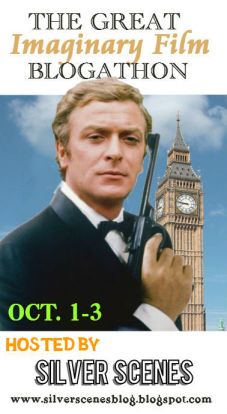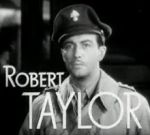 Georgette Heyer created the “Regency Romance” genre. By 1940, she had published Georgian romances and a mystery and historical novels set during the Regency period. That year, she was working on a detective novel but found herself unable to concentrate on it due to her worries about the war. Instead, she dashed off a lighthearted romance set during the Regency period. The Corinthian would set the pattern for almost two dozen subsequent Heyer works and scores of books by her imitators.
Georgette Heyer created the “Regency Romance” genre. By 1940, she had published Georgian romances and a mystery and historical novels set during the Regency period. That year, she was working on a detective novel but found herself unable to concentrate on it due to her worries about the war. Instead, she dashed off a lighthearted romance set during the Regency period. The Corinthian would set the pattern for almost two dozen subsequent Heyer works and scores of books by her imitators.
While Heyer enjoyed popular success, critics ignored her work. Despite the cinematic possibilities of her novels, which combine romance, humor, intrigue, and adventure, filmmakers ignored her as well. Only two of her works have received film treatments—The Reluctant Widow became a British film called The Inheritance (1950), and Arabella was the basis for a German film in 1959.
As soon as I read about this blogathon, I knew I wanted to give Heyer life on screen. And, since I was dreaming, I decided to dream big. Few golden-age producers were as successful at adapting books for the screen as David O. Selznick. As a child he absorbed classics like David Copperfield and Anna Karenina, which he later brought to the screen. Throughout his career, he also adapted popular contemporary works, including Portrait of Jennie, Rebecca, and—of course—Gone With the Wind.
After completing the Academy-Award-winning Rebecca, Selznick liquidated his company and took a short break from filmmaking. As Irene Mayer Selznick described in her autobiography A Private View, Selznick was battling depression and amphetamine addiction during this period and found it impossible to make a sustained effort on any picture.
In my imaginary world, however, Selznick came across Heyer’s novel and found in reading it the same diverting escape she found in writing it. Believing that the movie-going public might be ready for a similar diversion, he determined to produce it. Production took place late in 1942 for an early 1943 release.
Producing an imaginary movie has many advantages; the greatest is that you don’t have to worry about studio contracts. In casting my movie, however, I have tried to stay somewhat within the realm of possibility. I nabbed my leading man before he started military service. For my leading lady, I chose a genuine Selznick discovery, although I moved up the date of her breakthrough. For the supporting cast and production staff, I sought people with whom Selznick had previously worked.
What follows are excerpts from Selznick’s imaginary memos about this film. Selznick was a legendary memo writer. In some cases, I have re-purposed his own words from the 1972 collection Memo from David O. Selznick to serve my film’s purposes.
Note: For those unfamiliar with The Corinthian, Wikipedia provides a good plot summary and detailed list of characters.
The Property
I have gone over and carefully thought about The Corinthian. I do feel that it has showmanship values, though it is a very simple and slight story compared to Gone With the Wind or Rebecca. For that reason, I have hopes that it might be simpler to film and relatively inexpensive, and the public might welcome it as an escape from the world situation. Obviously, we do not want to pay a large price for a book by an obscure author, so I would only recommend purchasing it if we can get a good bargain. If your information about Miss Heyer’s finances is correct, we should be able to do so.
The Casting
To: Mr. Daniel O’Shea*
For the role of Pen Creed, I think it is essential that we use a new face. As described by the author, the character is only 17 years old, with an innocent, open demeanor and a hint of merriment. It is essential that we cast someone with a combination of exciting beauty and fresh purity. (Another advantage to a fresh actress is that she won’t object to the haircut required for a character who disguises herself as a boy throughout most of the picture.)
To: Mr. Daniel O’Shea
I am seriously considering Anne Baxter for the role of Pen. She did an excellent test for Rebecca, and the main strike against her was her youth. In The Corinthian, of course, that would be an asset. I have also considered Jennifer, but I don’t think she is the right type for this role.
We have another young woman named Rhonda Fleming under contract, and we are preparing a test for her. Since the plan is to film in Technicolor, her red hair would be an advantage, especially in the scene where Cedric Brandon recognizes her from her lock of hair. Of course, we would have to engage a dialogue coach for extensive work on her accent.
To: Mr. Daniel O’Shea
With Miss Fleming in place, the choice of a leading man with box office stature becomes critical. Heyer’s hero is a world-weary man of fashion, but he has a strong masculine presence that saves him from being a “pretty boy.” The character is about 30, and I think if we cast an actor much older than that, the pairing of him with Miss Fleming will be distasteful.
Of course, the great difficulty is that most men of the right age are tied up with military service. The most perfect actor I can imagine for the role is Errol Flynn, but I don’t think this is the time to cast him in a romance with a teen-aged heroine. I’ve heard that we might be able to get Robert Taylor before he starts his service.
To: Mr. Daniel O’Shea
For the supporting characters, I think things will proceed most smoothly if we choose British actors in most cases. We should look at the actors used in Rebecca and Jane Eyre as a starting point. For the character of Lydia, it is important that we choose an actress who comes across as less mature and less clever than our heroine.
The Director
In a director, we need someone with a light touch for comedy and experience with Technicolor. I wish I could use George, who has a great sense of the style of a book and of a picture and who could undoubtedly draw a good performance from Rhonda. Bill Wellman has the experience with color, but I don’t think he would be right for this picture. Someone like John Cromwell might be the safest choice, if we hold Mr. Menzies responsible for the physical aspects of the production and the final word on Technicolor issues.
The Script
To: Miss Katharine Brown
The ideal script, as far as I am concerned, would be one that contained very little original dialog. Dialog is one of the novel’s strengths, so we need a writer who will adapt it as faithfully as possible. Ben Hecht is good at conveying the mood of a novel, but I question whether he’s right because of the English atmosphere. Clemence Dane is a possibility, as is Aldous Huxley.
With such a short novel, I think there is very little that can be cut without hurting the story. Certainly, the opening scene with Richard and his sister and mother should be shortened so the audience can meet the heroine more quickly. I would also recommend keeping the scenes relating to the diamond heist as short as possible. Overall, the film needs to have a brisk pace. Short scenes are at the very essence of good motion-picture making, and one of the great values that we have in this medium, by comparison with the stage.
I agree that the number of characters is high, but most are essential to the story. I don’t think we need to see the father of the Brandon brothers but can imply his character through their actions. I don’t think we need to see Pen’s intended either, which spares us the difficulty of casting a man “with a face like a fish.”
To Mr. Cromwell:
I think we must be very careful in both the script and in the reading of the lines by English actors to avoid anything which might be difficult for an American to understand—as to actual phrasing and as to dialect. This issue is most acute with Jimmy Yarde and his criminal slang. I think we should commission the script girl, or some other American, to watch this point carefully throughout the making of the picture and to call to your attention anything which she thinks is dangerous from this standpoint.
The Production and Post-Production
To: Mr. Cromwell
Regarding the wardrobe, I would like to be as historically accurate in the women’s costumes as possible, avoiding the mess MGM made of Pride and Prejudice. I trust Walter Plunkett and Rene Hubert when it comes to period costumes.
It might be wise to bring in Gile Steele to give the men’s costumes extra attention. Richard’s attention to his clothing is central to his character, but we have to make sure his costumes don’t look ridiculous to modern audiences, even if it means sacrificing some historical accuracy.
To: Max Steiner
In preparing your score, spend whatever time you have free in study of the music of the period.
To: Miss Katharine Brown
I will admit that I have had some concerns about the title, as I don’t think audiences will be familiar with the term as Heyer uses it. Any synonym I can think of, such as “dandy” or “bon vivant” has effeminate connotations we want to avoid. It will probably be best to stay with Heyer’s title and make the meaning clear in the script itself. My experience has been that if a book has succeed with a title that seems a bad picture title, picture producers are foolish to worry about it.
Cast
Richard Wyndham: Robert Taylor
Penelope Creed: Rhonda Fleming
Lord George Trevor: Robert Morley
Lady Louisa Trevor: Agnes Moorehead
Lady Aurelia Wyndham: Gladys Cooper
Melissa Brandon: Valerie Hobson
Beverley Brandon: Eric Blore
Cedric Brandon: Reginald Denny
Piers Luttrell: Hugh Marlowe
Lydia Daubenay: Joan Greenwood
Jimmy Yarde: Gordon Harker
Horace Trimble: Trevor Howard
* Executive Vice President and General Manager, David O. Selznick Productions, Inc.




I admire your approach to the imaginary film based on Heyer’s novel. Your choices are most intriguing. Ah, what could have been!
Thanks for commenting!
I would totally watch that movie! Would that I could. And I love your approach of writing it all in memos — very fun!
Glad you liked it–thanks for commenting!
Great idea to write the ‘Selznick’ memos! Excellent cast
Vienna’s Classic Hollywood
Glad you liked it-thanks for commenting!
FABULOUS! What a wonderful cast!
Also, I like how you’ve written this post. I have a book on the history of Warner Brothers, as told through memos and letters by actors, directors, and the Brothers themselves. Your post reminds me of this book; it’s exactly the way the film would be discussed.
Glad you liked the approach. Memo from David O. Selznick and the similar books Memo from Darryl F. Zanuck and Inside Warner Brothers are some of my favorite sources on classic movies.
We were not familiar with The Corinthian, but this post makes it seem like a film and book that we have loved to absorb. This has to be the most historically-researched review in the blogathon. Great casting! And hurrah! you included Joan Greenwood…she was one astounding actress and yet is so little known today. THANK YOU for a wonderful contribution Amy!
Diana & Constance Metzinger,
Silver Scenes
Great post! I really liked the cast. I can imagine Lee Remick as Penelope if the movie was made in the late 1950s. You had a great idea to write memos as David Selznick, this was a great mark of his!
Don’t forget to read my contribution to the blogathon! 🙂
Greetings!